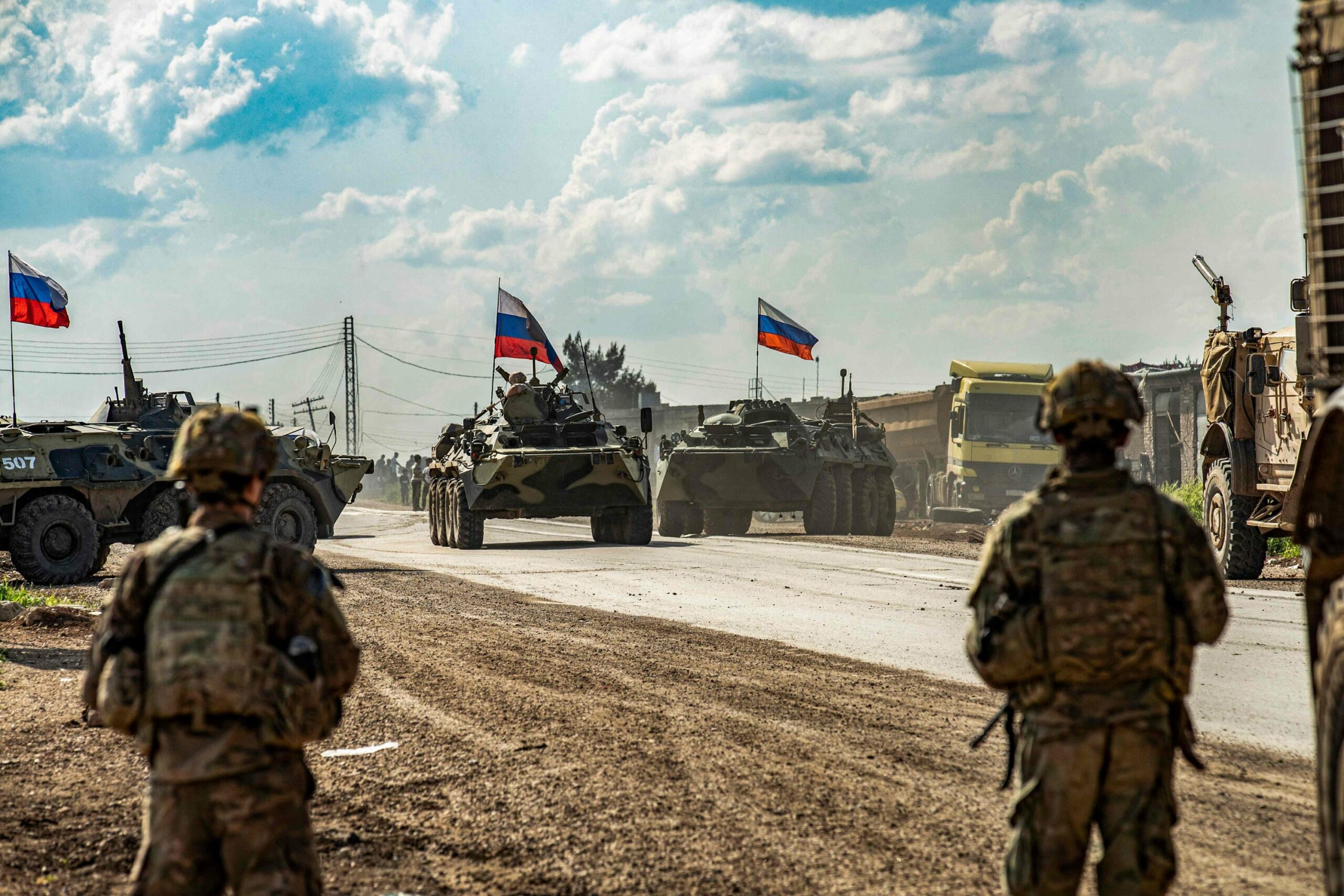
Russia’s involvement in Syria has been a defining factor in the trajectory of the country’s revolution, shaping both military outcomes and geopolitical alliances. Since its military intervention in 2015, Russia has been instrumental in securing the survival of Assad’s regime, altering the course of the conflict, and redefining the balance of power in the region.
Russia’s military support over the last nine years, which has involved the commission of war crimes, has consisted of airstrikes, ground forces, and advanced weaponry, allowing Assad to reclaim key areas that had been lost to revolutionary factions. This intervention not only stabilized Assad’s regime but also enhanced Russia’s influence in the region.
As highlighted in a report by the Alma Research Center, “Russian military personnel practiced operating Iranian-made drones…against ISIS forces,” showcasing Moscow’s use of advanced technologies to bolster Assad’s position while coordinating with regional players like Iran and Hezbollah.
Moscow’s involvement in Syria also represents a strategic play against the US and its allies. Russia has established itself as a power broker, balancing relationships with Iran, Turkey, and even Israel. This geopolitical strategy, as outlined by the Carnegie Endowment, is aimed at “punching above its weight” by leveraging its military successes in Syria to influence broader Middle Eastern politics. Tactics and weapons tested and developed in Syria have been implemented in other theaters – such as Ukraine. Furthermore, Russia’s air defense systems in Syria, like the S-400, are primarily used to protect Russian assets but also signal its lasting military footprint in the region.
While Russia has secured military victories, fully translating them into diplomatic and economic gains has been more challenging. Moscow’s attempts to spearhead reconstruction efforts in Syria, such as the 2018 initiative to facilitate the return of refugees with EU financial support, fell short. This effort, as mentioned by the Carnegie report, “failed in part because it could not secure buy-in from major actors.” The economic sanctions imposed on Russia due to its invasion of Ukraine have further strained its ability to sustain long-term involvement in Syria, and its military capacity in the Middle East may be compromised in the future as it faces logistical and resource challenges.
Analysts posit that going forward, Russia is likely to maintain a robust military presence in Syria, though its role may evolve. With attention divided due to the Ukraine conflict, Moscow has redeployed resources, including mercenaries, to Ukraine, which could limit its involvement in Syria.
However, Putin is not known to abandon such political and military investments, especially through his diplomatic engagements and strategic alliances. The relationship between Russia and Iran, though cooperative in Syria, could also become a source of friction, particularly as Iran’s proxies seek to escalate tensions with Israel – an outcome Moscow does not support.
Russian involvement in Syria has been transformative, securing Assad’s rule and asserting Russia as a critical player in Middle Eastern geopolitics. However, economic limitations and shifting alliances will likely influence how it navigates future conflicts in Syria and the region. The ability to manage its complex relationships, especially with Iran and Israel, will be key to its continued influence in the Levant.








